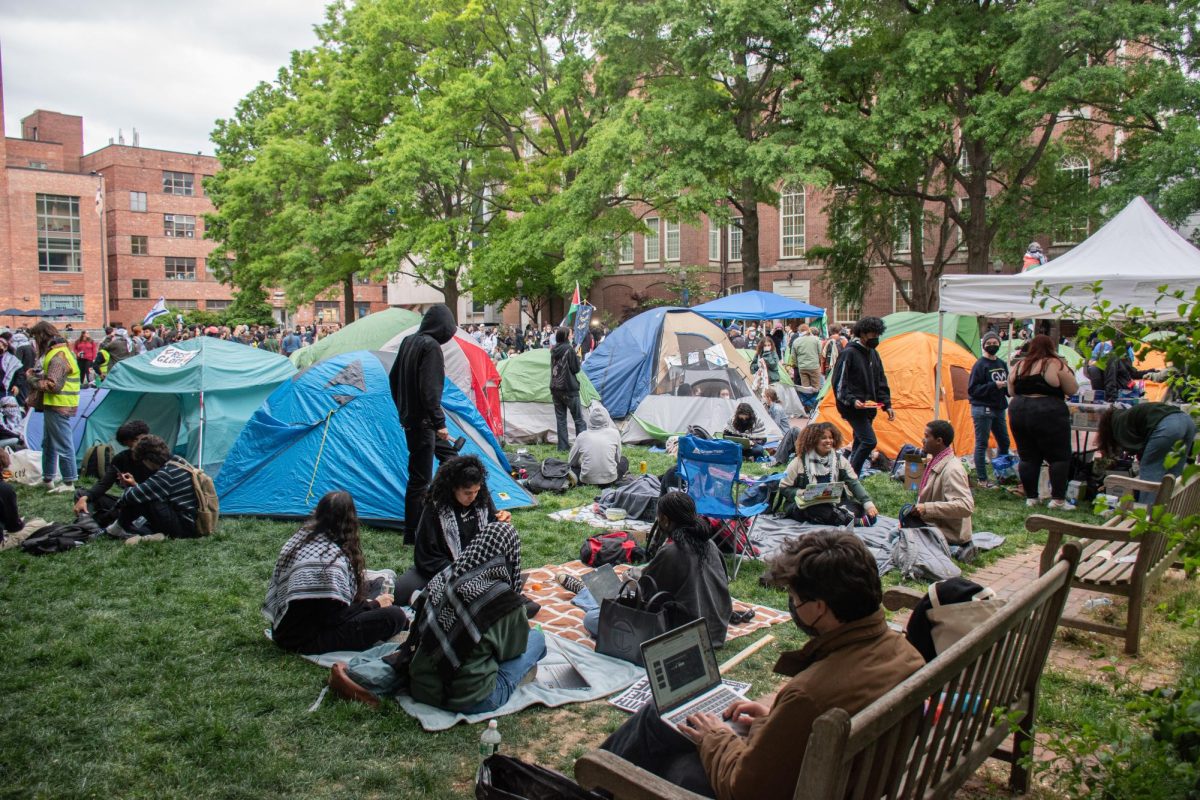Two veteran journalists said government subsidies could be the answer to saving journalism at an event Thursday afternoon in the Marvin Center.
Journalist and political blogger John Nichols and Robert McChesney, a political communication professor at The University of Chicago, said the government should give large subsidies to independent journalism organizations to alleviate the pressure of amassing ad revenue in order to produce content.
“The era of advertising that supported journalism is over,” McChesney said.
Currently 60 to 100 percent of revenue for the news media currently lies in advertising, McChesney said, adding that if print and postal subsidies worth $30 billion were given to spawn the free press, the quality of journalism would vastly improve.
Government subsidies would allow media organizations to “stop spinning truth from lies, create a wide range of informed opinions, and give every person the right to power,” McChesney said.
Nichols and McChesney said state and local governments would be a good source for these subsidies they propose.
“Although people say that once the government subsidies come in, the media will be censored, we think the opposite will happen,” said Nichols. “There is a current belief that the government is broken and beyond hope. The United States is currently out of our stage of being on a drunken high and into ‘bad hangover mode.’ The thing about hangovers is they end, and all you want to do is get drunk again. So let’s take this to our advantage and fix what is broken.”
Nichols said that due to the financial crisis in the media industry, journalists have been producing lower quality work in higher quantities.
“It used to be that the scariest thing possible was that big brother was watching you. Now the scariest thing possible is that you are watching big brother,” says Nichols. “In 2009, 30,000 newspaper employees were laid off and 140 newspapers closed. The sad thing is, the closures aren’t nearly as scary as the ones that remain open.”
Currently, 54 percent of Americans have access to the Internet, which means that they may not be receiving all of the crucial news information necessary, said Nichols.
Nichols said Internet journalism is not a solid profession because of the instability and improper funding allotted.
“We don’t think the future of our democracy should be put on chance,” Nichols said. “We want to encourage crowd sourcing and encourage innovation but we need to find ways to pay these journalists online and make sure that they have strong, well backed up arguments.”
Nichols said another disheartening truth in the media industry is the ratio of public relations agents to journalists. Nichols said that in 1960, there used to be a one to one ratio for journalists to PR agents, as opposed to the current landscape where there are four PR agents to every one journalist.
Journalists are spending time, resources and energy on their stories, yet they only make up 14 percent of the media landscape, said Nichols.
According to Nichols, the “news” is now turning to a group of people that aren’t backing up statements with facts.
“We are losing a generation of young journalists and we are getting stuck with old guys who don’t want to sleep under the bridge with the homeless guy and find the real story,” said Nichols.
For Monika Wysocki, a sophomore in the School of Media and Public Affairs, the future of journalism does not look bright.
“I’m not so sure about this subsidization idea. I think that it will just turn our country back into a partisan press,” Wysocki said. “Objectivity and news are too much engrained in our system to go forward into the future as neutral and unbiased.”
But freshman Connor McCloskey said Nichols and McChesney gave him hope in the future of journalist.
“Before I thought that the future was journalism was bleak. now I believe that there are affective ways to fix this,” McCloskey said.







